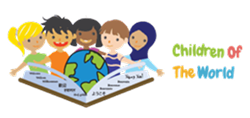Flowers Classroom
- Home
- »
- Weekdays Program
- »
- Flowers Classroom



Flowers Classroom
- Home
- »
- Weekdays Program
- »
- Flowers Classroom



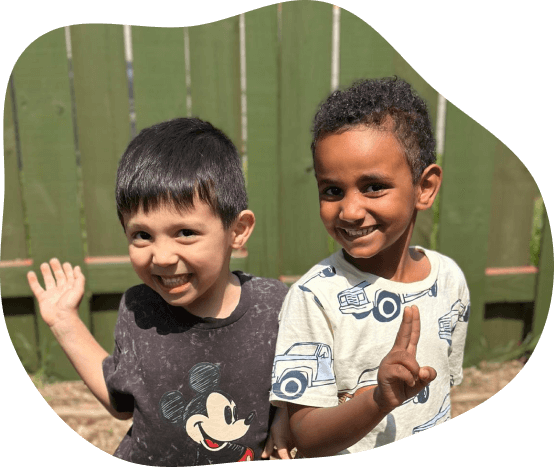
Flowers Classroom Overview
Age Group: 4½ to 5 years old
Teacher-to-Student Ratio: 1:10
Daily Routine
- Arrival and Welcome Activities
- Circle Time (Arabic & English)
- Literacy and Language Enrichment
- Qur’an Memorization and Hadith
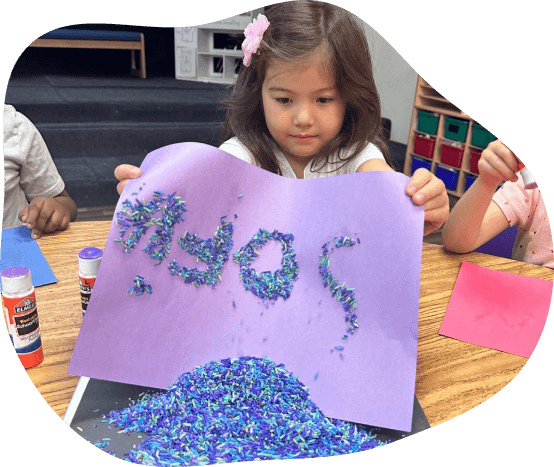
- Snack and Social Time
- Outdoor Play / Physical Education
- Thematic Centers (Science, Art, Dramatic Play)
- Math and Cognitive Exploration
- Prayer and Salah Practice
- Storytelling and Character Building
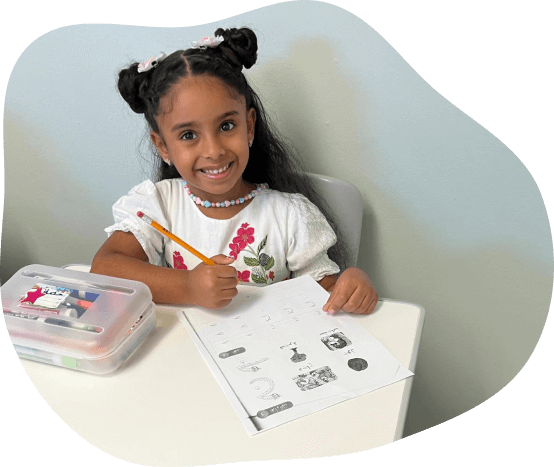
- Lunch and Quiet Reflection
- Arabic Language Activities
- Review and Reinforcement Games
- End-of-Day Circle / Recap and Dismissal Prep
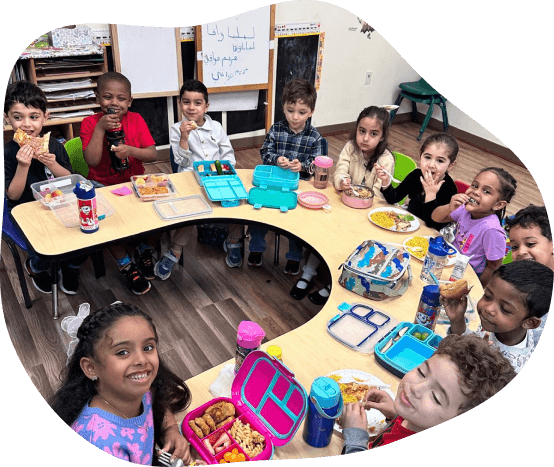
Objectives
Preschool Objectives (Ages 4 ½ to 5 Years)
Learning Skills & Early Numeracy
Children begin developing pre-literacy and early math skills through hands-on, play-based experiences. Teachers support fine motor development by introducing pencil grasp, tracing, matching, and sorting activities. Picture books, interactive storytelling, and guided conversations help build vocabulary, listening skills, and a love for reading in both Arabic and English.
Cognitive & Physical Development
Aligned with CDC Developmental Milestones and Virginia Quality standards, teachers observe and document each child’s growth in problem-solving, memory, coordination, and motor skills. Activities are designed to promote both gross motor abilities (like climbing and jumping) and fine motor precision (such as stacking, stringing, and pouring).
Social-Emotional Learning
Children are supported in building positive relationships, recognizing emotions, and expressing needs. Through group activities, routines, and guided interactions, they learn to take turns, follow simple rules, and gain self-confidence. Responsive caregiving helps foster a strong sense of belonging and emotional security.
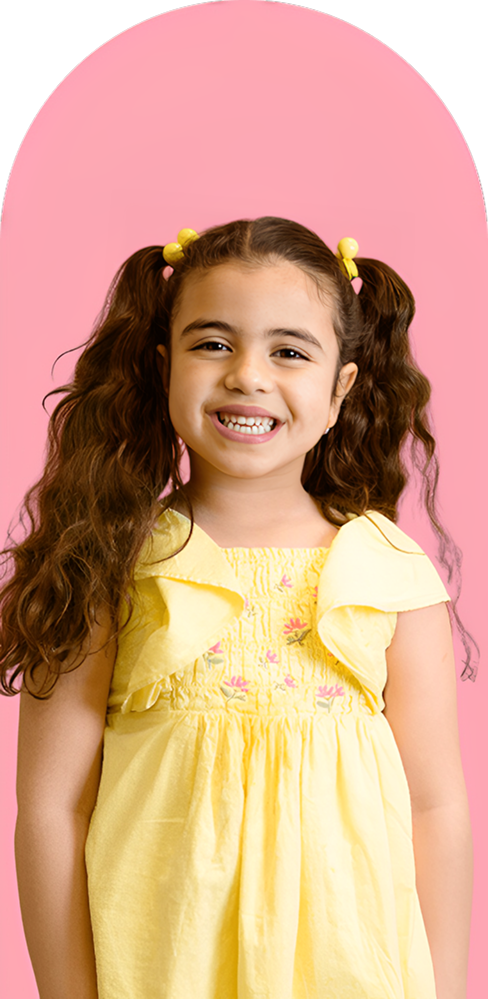
Language & Speech Development (Bilingual Approach)
Language acquisition is supported in both Arabic and English using the Total Physical Response (TPR) method, repetition, music, and storytelling. Children learn to follow simple instructions, identify familiar words, and begin forming short sentences. Daily routines, songs, and visual cues strengthen early speech development in both languages.
Creative Expression & Artistic Development
Art is an essential part of exploration and self-expression. Through age-appropriate art and sensory activities, children are encouraged to create freely using a variety of materials. Projects are focused on the process rather than the product, supporting fine motor skills and creativity.
Understanding the World
Children begin to make sense of the world around them through themed activities, nature exploration, and cultural celebrations. They observe patterns, care for classroom plants or animals, and engage in dramatic play that mirrors everyday experiences, helping them build awareness of their environment and community
